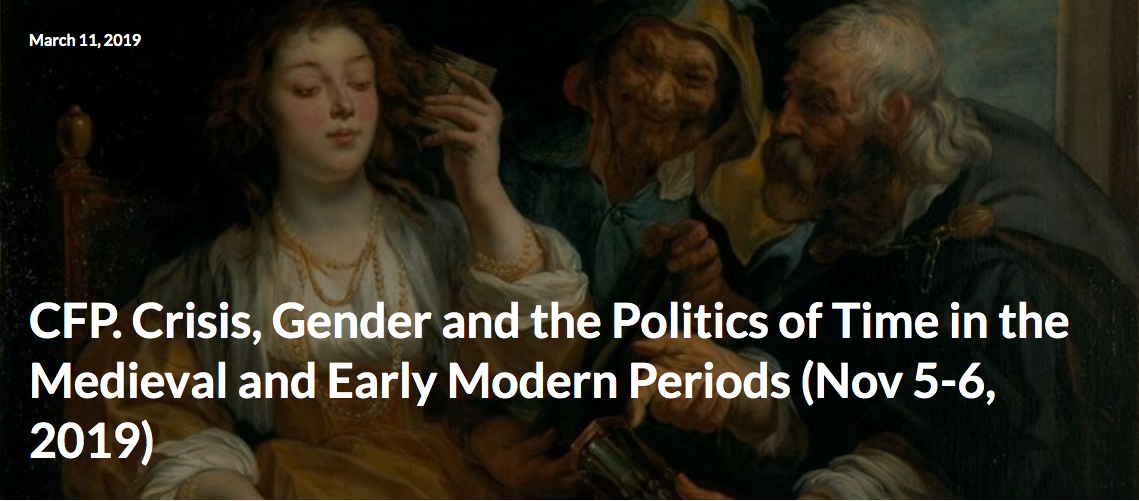
In the last two decades queer, gender and feminist studies have enabled scholars to better understand the multiplicity of temporal experiences and discourses of time as well as the entanglements between the temporal and the social in the pre-modern period. Far from being a disembodied concept, time is quintessentially associated with contingent social practices and narratives of gender. More specifically, the interaction between gender and temporality has been shown to be inherent to strategies of memorialization, as well as to historiographical narratives, both medieval and modern. For the Middle Ages, attention has concentrated in particular on English and partly French sources. By using the conceptual tool of crisis, this conference aims to widen the spectrum and look at the broader European and Mediterranean spaces across both the medieval and early modern periods. We take the term crisis in its wider meaning and conceptually we regard it as particularly suitable to highlighting the connections between different typologies of temporal patterns (e.g. eschatological temporalities; renewal and decadence; prophecies etc.) across different social backgrounds. Therefore, we welcome contributions looking at how gendered temporalities are expressed in a wide array of moments of transition both individual and social: existential crisis, spiritual emergency, mysticism but also political/military crisis, shifts toward new systems of beliefs, Reformation, socio-economic changes, circumstances threatening the existence of single communities, etc.
Within this framework we encourage prospective speakers to consider how gender is reflected by/has an impact on:
- patterns of time;
- control and policing of time;
- social values and meanings of time-uses;
- discourses of generation;
- subjective experiences of time.
Keynotes: Shaun Tougher (Cardiff University) and Diane Watt (University of Surrey).
For further details, please visit the conference website.
